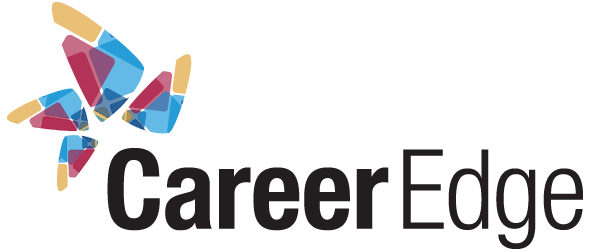If, as an employer, you’re asking for “Canadian experience” in your hiring process, you’re shooting yourself in the foot!
Let me ask you something: would you knowingly expose your company to potential lawsuits and thousands of dollars in damages, while missing out on top talent and damaging your reputation?
Of course not.
I know what you’re thinking: “But we need to make sure candidates can do the job!”…I get it, as business leaders, we want to hire people who can hit the ground running.
But here’s a reality check: requiring Canadian experience is not just ineffective – it’s illegal discrimination that’s costing businesses across Canada dearly.
Canadian Experience is Not Just “Preferred” – It’s Illegal
The Ontario Human Rights Commission hasn’t left any room for interpretation on this issue. Their official position states that requiring “Canadian experience” is prima facie discrimination – meaning it’s discriminatory on its face.
This isn’t some minor policy guideline you can choose to ignore.
Under the Ontario Human Rights Code, you cannot discriminate based on:
- Place of origin
- Ethnic origin
- Ancestry
- Race
- Citizenship status
When you require Canadian experience, you’re essentially discriminating against people based on where they come from – a direct violation of human rights legislation.
The Real Cost of Non-Compliance
Let’s talk numbers, because I know that’s what gets attention in the boardroom:
Direct Financial Costs
- Legal fees: $10,000-$50,000+ for defending human rights complaints
- Settlement costs: Successful complainants receive thousands in compensation
- Lost productivity: Time spent on legal proceedings instead of business operations
- Compliance training: Emergency training costs when violations are discovered
Hidden Business Costs
- Talent shortage: Excluding 40%+ of qualified candidates in major markets
- Innovation loss: Missing diverse perspectives that drive competitive advantage
- Reputation damage: Public human rights complaints harm employer branding
- Recruitment costs: Higher spending to find candidates from a smaller pool
The Bitonti Case: A $45,000 Wake-Up Call
In the landmark British Columbia case Bitonti v. British Columbia (Ministry of Health), discriminatory licensing practices that favored Canadian experience resulted in significant legal consequences. The tribunal found that policies requiring Canadian experience were discriminatory and caused substantial harm to qualified international professionals.
This case set a precedent that continues to influence human rights decisions across Canada. Companies found guilty of similar discrimination face not just financial penalties, but court orders requiring them to change their hiring practices entirely.
Why “Canadian Experience” Is Important to You?
What do you think you need when you expect a Canadian experience? Let’s break down the real reasons behind Canadian experience requirements and show you better, legal alternatives:
“We Need Someone Who Speaks Good English”
What you’re doing wrong: Assuming Canadian experience equals language skills
Why it’s problematic: Discriminates against multilingual professionals with excellent English
Legal alternative: Test language skills directly through structured interviews, written assessments, presentation requirements, and phone/video screenings.
“They Need to Understand Our Industry”
What you’re doing wrong: Assuming industry knowledge only comes from Canadian experience
Why it’s problematic: Ignores transferable knowledge and research capabilities.
Legal alternative: Test industry knowledge through scenario-based interview questions, technical assessments, case study discussions, and portfolio reviews.
“We Want Someone Who Fits Our Culture”
What you’re doing wrong: Using “cultural fit” as code for Canadian experience
Why it’s problematic: Often masks unconscious bias about different backgrounds.
Legal alternative: Define specific cultural competencies like collaboration skills, communication style preferences, problem-solving approaches, and professional values alignment.
“They Need Soft Skills”
What you’re doing wrong: Believing soft skills are geographically specific
Why it’s problematic: Many soft skills are universal and transferable
Legal alternative: Test actual soft skills through behavioral interview questions, team-based assessments, reference checks, trial periods, or projects.
ALSO READ: 10 Questions Interviewers Should Ask A Candidate In Interviews
The Business Case for Inclusive Hiring
Beyond legal compliance, there are compelling business reasons to eliminate Canadian experience requirements:
Access to Superior Talent
- Larger candidate pool: Access to internationally trained professionals who often exceed local qualifications
- Competitive advantage: Many international candidates have advanced degrees and specialized training
- Language skills: Multilingual employees can serve diverse customer bases and international markets
- Global perspective: Experience in different markets provides valuable business insights
Innovation and Growth
- Diverse thinking: Different cultural backgrounds bring fresh approaches to old problems
- Market insights: International experience helps companies expand globally
- Creative solutions: Diverse teams consistently outperform homogeneous ones in problem-solving
- Adaptability: Professionals who’ve succeeded in multiple countries are highly adaptable
Financial Performance
Companies with diverse workforces consistently outperform less diverse competitors:
- 35% more likely to outperform industry averages (McKinsey & Company)
- Higher employee satisfaction and retention rates
- Better customer service for diverse client bases
- Reduced recruitment costs through word-of-mouth referrals
How to Hire Legally and Effectively
Here’s your step-by-step guide to compliant, effective hiring:
Step 1: Audit Your Current Practices
Review job postings for:
- Direct mentions of “Canadian experience required”
- Subtle preferences like “Canadian experience preferred”
- Coded language that implies Canadian experience necessity
- Requirements that could be interpreted as discriminatory
Examine your interview process:
- Are interviewers asking about Canadian work history?
- Do evaluation forms place a heavy emphasis on Canadian experience?
- Are international qualifications being fairly assessed?
- Is unconscious bias affecting decisions?
Step 2: Rewrite Job Requirements
Instead of: “Must have 5 years Canadian experience” Write: “Must have 5 years relevant experience in [specific industry/role]”
Instead of: “Canadian designation required,” Write: “Professional designation required (or equivalent international certification)”
Instead of: “Must understand Canadian market” Write: “Must demonstrate knowledge of [specific market factors, regulations, or industry standards]”
Step 3: Restructure Your Interview Process
Skills-Based Questions:
- “Tell me about a time you had to adapt to new regulations in your field.”
- “How would you handle [specific scenario relevant to the role]?”
- “What experience do you have with [specific tools/processes/standards]?”
Cultural Competency Assessment:
- “Describe how you’ve worked effectively in diverse team environments.”
- “How do you handle conflicting priorities or feedback from multiple stakeholders?”
- “Tell me about a time you had to learn new workplace processes quickly.”
Knowledge Testing:
- Create practical assessments that test actual job-relevant skills
- Use case studies that reflect real workplace challenges
- Implement trial projects or presentations
- Conduct technical evaluations where appropriate
Step 4: Train Your Hiring Team
Legal Requirements Training:
- Human rights obligations under provincial and federal law
- What questions are prohibited during interviews
- How to assess qualifications fairly regardless of origin
- Documentation requirements for hiring decisions
Unconscious Bias Training:
- Recognition of common biases in hiring
- Techniques for objective candidate evaluation
- Cultural competency in professional settings
- Value of diverse perspectives in business
Step 5: Implement Accountability Measures
Documentation Requirements:
- Record specific reasons for hiring decisions
- Document how international qualifications were evaluated
- Maintain consistent scoring systems across candidates
- Keep records of accommodation efforts when needed
Regular Audits:
- Review hiring statistics for patterns of discrimination
- Analyze rejection reasons for international candidates
- Monitor complaint patterns or feedback
- Assess diversity outcomes in hiring
Special Considerations for Regulated Professions
If you work in healthcare, engineering, law, or other regulated fields, you face additional complexity. However, even regulated professions cannot blanket-require Canadian experience without justification.
What’s Legal:
- Requiring specific certifications or licensing
- Testing knowledge of Canadian regulations and standards
- Requiring supervised practice periods where genuinely necessary for public safety
- Bridging programs that help international professionals meet Canadian standards
What’s Not Legal:
- Automatically assuming international training is inferior
- Requiring Canadian experience when competency can be demonstrated in other ways
- Creating unnecessarily long or expensive qualification processes
- Refusing to recognize equivalent international credentials
Creating Inclusive Alternatives
Bridging and Mentorship Programs
Best Practices:
- Paid positions that provide Canadian workplace exposure
- Structured learning about local industry practices
- Mentorship with experienced Canadian professionals
- Clear pathways to full employment
Legal Pitfalls to Avoid:
- Automatically streaming international candidates into bridging programs
- Using unpaid internships as barriers to employment
- Requiring longer bridging periods than necessary
- Treating bridging as inferior to direct hiring
Skills Assessment Centers
Create evaluation processes that test actual job competencies:
- Simulation exercises that mirror real work tasks
- Portfolio reviews of previous work
- Collaborative projects that assess teamwork abilities
- Presentation opportunities that test communication skills
Partnerships with Professional Organizations
Work with industry associations and immigrant-serving organizations to:
- Understand international qualification standards
- Access pre-screened candidate pools
- Develop industry-specific assessment tools
- Create networking opportunities for international professionals
Implementation Timeline: Your 90-Day Compliance Plan
Days 1-30: Assessment and Planning
- Audit current job postings and hiring practices
- Identify discriminatory language and requirements
- Train HR team on legal obligations
- Develop new job posting templates
Days 31-60: Process Development
- Create skills-based interview guides
- Develop practical assessment tools
- Establish documentation procedures
- Design bias-reduction protocols
Days 61-90: Launch and Monitor
- Implement new hiring practices
- Monitor early results and feedback
- Adjust processes based on outcomes
- Begin tracking diversity metrics
Red Flags: When You’re Still Discriminating
Watch for these subtle forms of Canadian experience discrimination:
In Job Postings:
- “Canadian experience preferred”
- “Local experience is an asset”
- “Must be familiar with Canadian workplace culture”
- Requirements for Canadian professional references only
During the Interviews:
- “How will you adapt to working in Canada?”
- “Do you understand how things work here?”
- “Are you familiar with Canadian business practices?”
- Giving disproportionate weight to Canadian work history
The Evaluation Process:
- Automatically scoring Canadian experience higher
- Dismissing international qualifications without proper assessment
- Requiring Canadian references when others are available
- Making assumptions about cultural fit based on origin
The Competitive Advantage of Compliance
Companies that get ahead of this issue don’t just avoid legal problems – they gain significant competitive advantages:
Talent Magnet Effect
- Become known as an inclusive employer that values diverse experience
- Attract top international talent that competitors miss
- Build a reputation that helps with recruitment and retention
- Access hidden talent pools that others ignore
Innovation Catalyst
- Diverse teams solve problems more creatively
- International experience brings valuable market insights
- Different perspectives challenge status quo thinking
- Global networks expand business opportunities
Future-Proofing
- Build a workforce that reflects Canada’s diverse population
- Develop cultural competencies for global business
- Stay ahead of evolving legal requirements
- Position the company as a progressive industry leader
Resources for Implementation
Legal Guidance
- Ontario Human Rights Commission: Policy guides and compliance resources
- Employment lawyers: Specialized legal advice for complex situations
- HR consultants: Professional help with policy development
- Industry associations: Sector-specific guidance and best practices
Training Resources
- Human rights training providers: Unconscious bias and legal compliance training
- Diversity and inclusion consultants: Comprehensive workplace culture assessment
- Professional development organizations: Skills-based interviewing training
- Online resources: OHRC website, government guidance documents
Assessment Tools
- Psychometric testing companies: Validated skills and personality assessments
- Interview guide templates: Structured, bias-free interview formats
- Portfolio assessment frameworks: Standardized evaluation criteria
- Reference check protocols: Consistent candidate evaluation methods
The Bottom Line: Change Now or Pay Later
The writing is on the wall: Canadian experience requirements are illegal discrimination, and enforcement is increasing. Every day you delay compliance, you’re exposing your business to legal risk and missing out on exceptional talent.
But this isn’t just about avoiding problems – it’s about gaining a competitive advantage. Companies that embrace inclusive hiring practices consistently outperform those that don’t. They attract better talent, innovate more effectively, and build stronger relationships with Canada’s increasingly diverse population.
The choice is yours: you can continue with discriminatory practices and hope you don’t get caught, or you can get ahead of the curve and build a hiring process that’s both legally compliant and strategically superior.
The most successful companies won’t be those that find ways around anti-discrimination laws – they’ll be the ones that recognize diverse experience as the competitive advantage it truly is. The question isn’t whether you can afford to change your hiring practices. The question is whether you can afford not to.
Make the wise business decision. Your legal team, your shareholders, and your future success depend on it.





